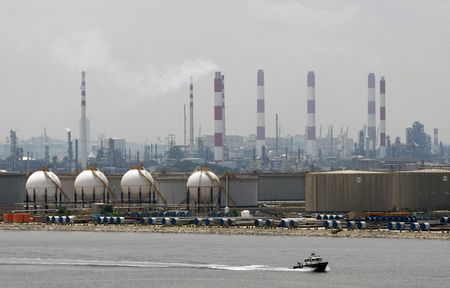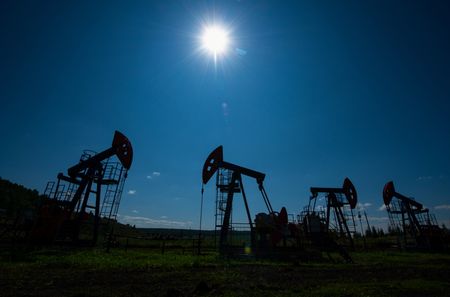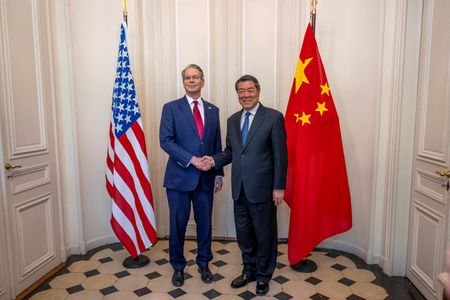By Jeslyn Lerh
SINGAPORE (Reuters) -Fuel oil margins climbed after U.S. President Donald Trump reimposed a stricter policy on Iran, though trade sources expect a short-lived rally due to unclear supply disruptions, while soft China demand and broader tariff fears weighed on sentiment.
The market, particularly for high-sulphur fuel, has undergone volatile movements so far this year, as trade participants considered mixed drivers and assessed supply uncertainty.
The recent strength in traded margin or crack spread was more of a knee-jerk reaction, a fuel oil trader said, adding that Chinese demand remained a bearish factor.
Singapore’s 380-cst high-sulphur fuel oil (HSFO)/Brent crack for March reached a discount of about 70 cents a barrel in Wednesday morning trade, according to market sources.
Cracks compared over 80% higher versus early 2025 when it was at a discount wider than $5 a barrel, based on data compiled by LSEG. The front-month value hit a multi-year high in end-January.
HSFO benchmarks have been supported due to risks of tighter logistics after the U.S. imposed broader sanctions on Russia.
A tighter Middle Eastern crude oil market also supported fuel oil benchmarks after OPEC+ delayed its output hike in the first quarter.
“The tighter sour crude complex is driving the strength of the heavy residual market. We expect some relief after April with OPEC’s gradual unwinding,” said Emril Jamil, senior analyst at LSEG Oil Research.
Ongoing cuts by OPEC producers have constrained global supply of sour crude, which could lower fuel oil production as these crudes yield a higher percentage of the residual product.
“The strength comes from high Dubai crude prices, driven by higher demand from India for near-term replacement barrels after OFAC sanctions,” said Ivan Mathews, head of APAC analysis at Vortexa.
Concerns over reduced Russian fuel oil flows into Asia due to recent sanctions also supported the market, Mathews said.
However, the strength will remain capped on weaker demand, market sources said. China’s fuel oil imports are set to soften due to a hike in the product’s import tax this year and lower rebates on purchases.
Concerns on broader tariffs are also adding much volatility to the market, another fuel oil trader said.
Meanwhile, Trump restored on Tuesday his “maximum pressure” campaign on Iran that includes efforts to drive its oil exports down to zero, reimposing Washington’s tough policy on the country.
Iranian oil typically moves via a shadow fleet of tankers that conceal their activities to skirt sanctions.
(Reporting by Jeslyn Lerh; Additional reporting by Florence Tan and Siyi Liu; Editing by Rashmi Aich and Sherry Jacob-Phillips)











